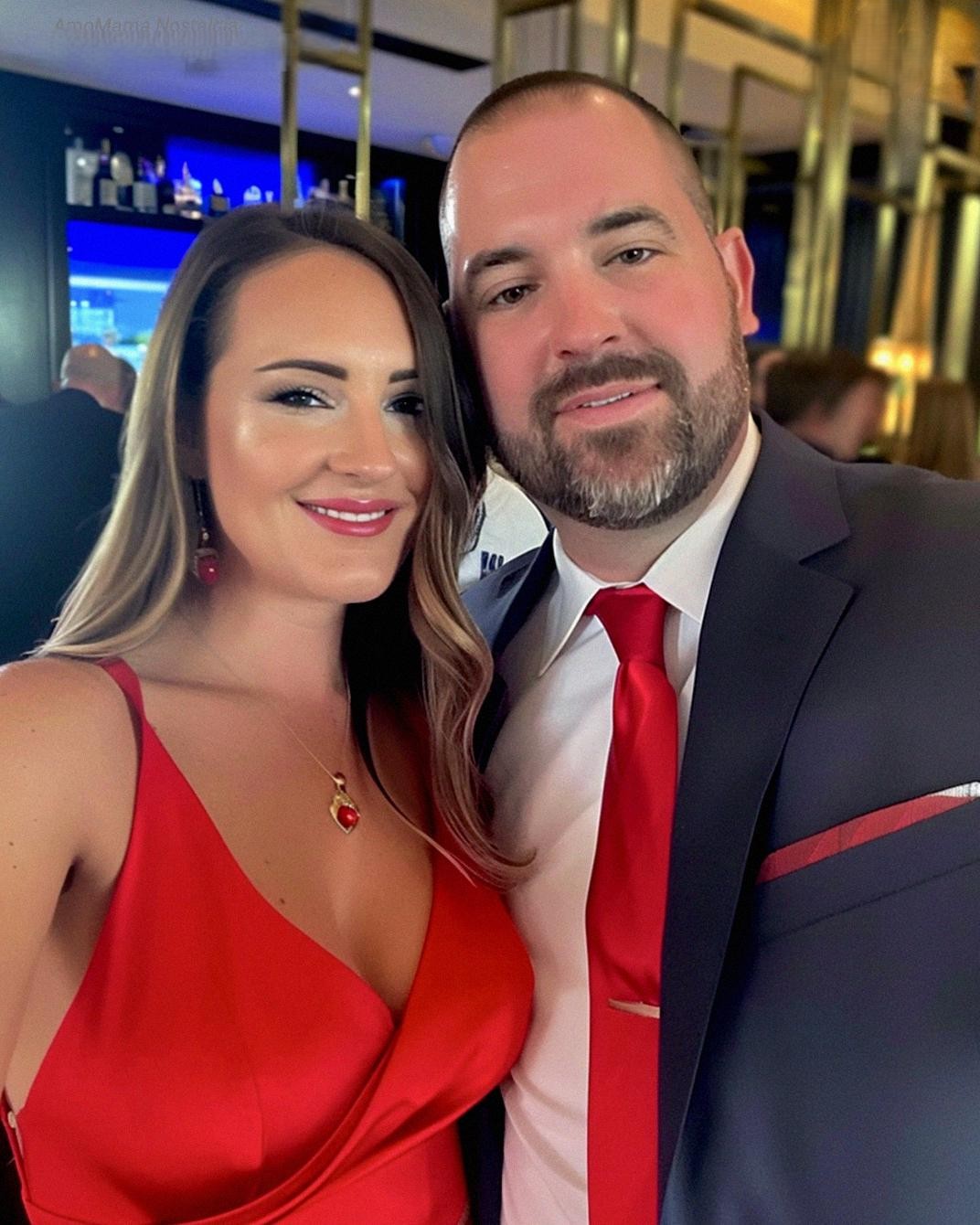I hadn’t set out to save anybody that night. All I wanted was a quiet walk — forty minutes of cool air to rinse off another day spent drowning in spreadsheets and pretending quarterly goals meant something to me. November always weighed heavy on the city, like everything was breathing out stress and steam.
But halfway down Elm Street, I noticed a figure standing on the edge of the old Carter Building’s rooftop — the kind of shape that makes your heart sink before your mind even processes it.
A man. Maybe mid-thirties. Completely still. One foot hanging far too close to the void.
Perfect, I thought. Just what my night needed — someone about to end their life.
I should’ve called 911. A reasonable person would have. But something in me — maybe exhaustion, maybe stubbornness — carried me straight into the building.
The lobby was deserted, lit by one flickering bulb and covered in the familiar damp smell of old walls. The elevator was out (of course), so I climbed the stairs, five floors of muttering curses under my breath.
When I pushed open the rooftop door, a shock of cold hit me. He didn’t turn when I stepped out. Didn’t flinch. Just stared at the skyline like he wanted it to make the choice for him.
“Hey,” I called out. Nothing dramatic, just enough to break the silence.
He didn’t jump — small victory.
“You shouldn’t be up here,” he said, still facing the city.
“Obviously,” I replied. “But here I am anyway.”
He let out a tiny snort, almost lost to the wind.
I moved a little closer but stayed careful. You don’t rush someone standing on a ledge — everyone knows that.
“Bad day?” I asked.
He shook his head. “Bad decade.”
Fair enough.
“What’s your name?” I said.
“Does it matter?” he shot back.
“Yeah,” I answered. “If you’re going to disrupt my walk, I’m at least getting your name out of it.”
That actually made him look at me. Dark hair, hollow exhaustion, the kind of face that hadn’t slept properly in years.
“Mark,” he muttered.
“I’m Lena.”
He gave me a slight nod and turned back toward the endless drop.
After a long silence he said, “I’m not afraid of falling.”
“Good,” I said. “I’m not scared of heights. We’re practically soulmates.”
He let out a real laugh — tiny, but real.
Then he said, “I lost my job. My girlfriend left. My brother won’t answer my calls. I’m drowning in debt. And I’m tired… unbelievably tired.”
I leaned against the rail a few feet away. “You know what I’m tired of? People thinking they’re out of options when really they’re just out of ideas.”
He frowned. “You think that helps?”
“No,” I answered honestly. “I’m not here to magically fix your life. I’m just saying — stepping off a roof isn’t the only direction left.”
He stared down at the street far below. “Feels like the easiest one.”
“So does never leaving bed,” I said, “but we still don’t do that.”
He gave another frustrated laugh.
“You don’t understand,” he murmured.
“Try me,” I said.
And he did. For a full minute he unloaded everything — the job loss, the bills, the breakup, the family mess, the shame swallowing him whole.
“I’m not scared of being dead,” he finished. “I’m scared of being alive like this.”
That hit me harder than I expected. I inhaled sharply, letting the cold sting my lungs.
“Listen, Mark,” I said. “You’re right — life can be absolutely brutal. And sometimes it doesn’t let up. But you’ve survived every single day you swore would end you. That’s not nothing.”
He blinked, eyes glossy from tears or the wind — maybe both.
“And here’s the honest truth,” I added. “Not the inspirational poster version — the real one: nobody is coming to save you. Not your ex. Not your old boss. Not fate. It’s on you. Tonight you either step back or step forward. The world won’t stop spinning either way.”
He swallowed. “That… isn’t exactly encouraging.”
“It’s not meant to be,” I shrugged. “All you need to do tonight is one thing: take one step backward. That’s it. Deal with the rest later.”
For a while, neither of us said anything.
Then he moved.
One step back.
Just one — but it felt like the entire universe shifted with it.
He sank down onto the cold concrete floor, shaking. I waited a second to make sure he wasn’t about to sprint back to the edge, then sat beside him.
“What now?” he asked quietly.
“Now,” I said, “we go downstairs. I buy you the cheapest, worst coffee in town. You sit and breathe until your brain stops spiraling. Tomorrow you call your brother — whether he answers or not. Next week you apply for jobs. One thing at a time.”
He nodded, absorbing each word like he hadn’t heard anything that simple in years.
“Why did you come up here, Lena?” he asked.
I thought about softening the truth, but I didn’t.
“Because I know what it feels like to believe the world wouldn’t notice if you disappeared.”
He looked at me then — really looked — and for once there was no pity in his eyes. Just understanding.
We stayed on that roof until our fingers went numb. No dramatic epiphanies, no Hollywood speeches. Just two exhausted people sharing cold air and a quiet, stubborn choice to keep going.
When we finally headed downstairs, the city wasn’t any gentler.
But it looked survivable.
Sometimes, that’s enough.
